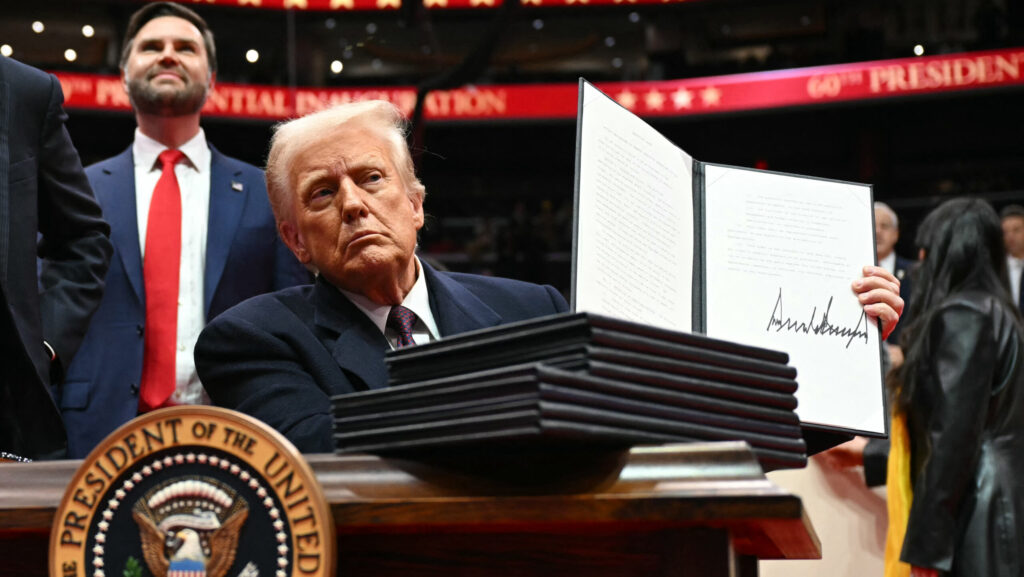In recent months, a heated debate has erupted over public opinion polls. The differences between individual polls seemed significant not only to laypeople but also further undermined trust in pollsters. However, the question is not only whether we can trust the numbers, but also whether we can trust the conclusions that present the preferences of individual voter groups as almost deterministic. For example, is it true that young people are lining up behind political forces critical of the government? Is there any basis for the image of anti-government youth, and could young people bring about a change of government in 2026?
The political activity of Generation Z has come into focus due to the events in Nepal, and last year, there was much discussion about the young voters who helped Donald Trump get elected president. In Hungary, following the 2010 elections, young people were consistently described as a potential force for change, regardless of what the research data showed. Before the last parliamentary elections, many expected an opposition victory, given the activity of young people critical of the government.
Looking back, it is clear that this expectation was wrong, yet it still surprised many. In my opinion, this is mainly because the most visible political activities linked to young people, such as the demonstrations by FreeSZFE or, earlier, the Student Network, were almost without exception critical of the government. Today, the anti-government chants at summer festivals reinforce the concept of ‘anti-government youth’. Although the 2026 election will differ from the 2022 election in many ways, caution is still warranted. Below, I will summarize why.
How Many Young Votes Can We Expect in 2026?
Let’s start with the basic figures: of the 9.5 million Hungarians, approximately 7.9 million are 18 or older, meaning they are eligible to vote. However, not all eligible voters turn out in every election; roughly two out of three actually go to the polls. The National Election Office provides detailed data, showing that 69.6 per cent of voters exercised their right to vote in the 2022 election. Less than 60 per cent voted in the 2024 combined European Parliament and local elections. Voter turnout depends on several factors, including location, education, and age. Young people tend to be less active, except for first-time voters, for whom the opportunity to vote is a kind of initiation into adulthood.
There are just over 1.2 million citizens under the age of 30 who are eligible to vote. If young people turn out in similar proportions and age groups as in the 2022 elections, we can expect roughly 800,000 to 850,000 ballots, which is a significant number. The question is whether so many will actually go to the polls, and if so, which party will they support.
‘Young people tend to be less active, except for first-time voters, for whom the opportunity to vote is a kind of initiation into adulthood’
The answer to the first question is that it is almost certain they will not turn out in proportion to the national average. At present, there does not appear to be any force that would increase their activity and attract them to the polls more than usual. Government-critical chants at summer festivals do not necessarily lead to generational rebellion. It is worth considering whether, when we see politically active young people, we are seeing youth as a whole—those 800,000 ballots. Based on previous examples, such as Critical Mass, Student Network, FreeSZFE, etc, the answer is almost certainly no.
However, it is worth considering whether there has been a general increase in political interest among young people and whether we can expect greater participation. Previous trends have shown that young people’s interest in politics has remained consistently low in Hungary in recent decades, but the coronavirus pandemic brought some change, resulting in a slight increase in interest. Could interest increase further by next spring? It is impossible to give a clear answer at present, but any issue that directly affects the everyday lives of young people could increase activity (some may still remember the protests against the so-called internet tax). However, apart from such clear-cut issues, higher turnout does not necessarily increase the number of people who want a change of government, as we saw in the last elections.
And What about Party Sympathy?
The varying results of recent research on political sympathy make it difficult to assess the situation, but additional challenges arise when examining the party preferences of young voters. One such challenge is greater uncertainty, which stems from the fact that it is generally more difficult to persuade younger people to participate in surveys. Surveys using representative samples typically interview fewer young people than their proportion in the population would suggest. Although this shortfall is corrected by weighting, estimates for young people are based on fewer observations, so opinion polls covering the entire adult population are not the best tool for understanding the political activity and party sympathies of young people.
Data collection specifically targeting young people, such as that conducted by the Hungarian large sample youth survey, is more suitable for this purpose, but data on young people is provided less frequently. To be precise, every four years. Previous studies have consistently shown a strong pro-government majority among the survey’s target group, that is, 15- to 29-year-olds. The most recent public data is from 2020, when 45 per cent of those who said they would definitely vote would have voted for the ruling parties, and 34 per cent for the opposition.
‘It is generally more difficult to persuade younger people to participate in surveys’
So instead of browsing through the latest public research results, I suggest we focus on political socialization. Young people’s political knowledge comes primarily from their families. A study conducted by the Youth Research Institute following the 2022 parliamentary elections showed that the vast majority of young people casting their first ballot voted for the same party and individual candidates as their parents. The Hungarian large sample youth survey also shows that the vast majority of Hungarian young people accept their parents’ values and agree with their parents on political issues. More recent research does not suggest that there is any more significant generational tension within families today than there was four or eight years ago.
What Can We Expect in the Coming Period?
In recent decades, we have often seen election results that did not reflect preliminary expectations. There are complex reasons for this, but perhaps the most important reason is that our direct experiences are limited, and our mediatized everyday life does not necessarily help and may even distort our knowledge.
Today, our information is based on online media, particularly social media, which in Hungary continues to be dominated by Facebook, even among young people. The content offered by algorithms is shaped partly by our settings, partly by our observed preferences, and partly by advertisements. An important question in the near future will be what impact Meta’s strategy of restricting political content will have on the formation of opinions.
If we want to get closer to a realistic picture of the situation, we should not focus on current opinion poll data, but on trends. What matters most is not how popular a particular political force is at the moment, but whether its popularity has declined, increased, or stagnated in the recent period. Even more important for creating a realistic picture is that we do not deliberately shut ourselves off in the echo chamber of social media and strive to ensure that others do not do so either. We should strive to gain experiential knowledge ourselves and not rely solely on media-driven information. And if we are curious about how young people think about politics, let us not just read analyses, but talk to them.
Related articles:







